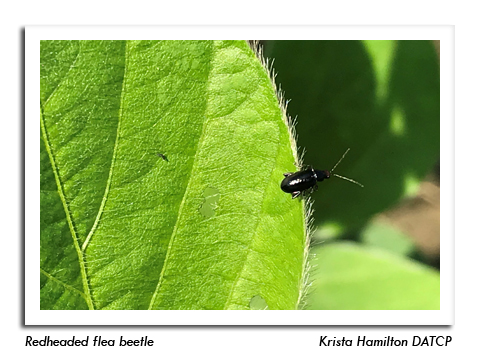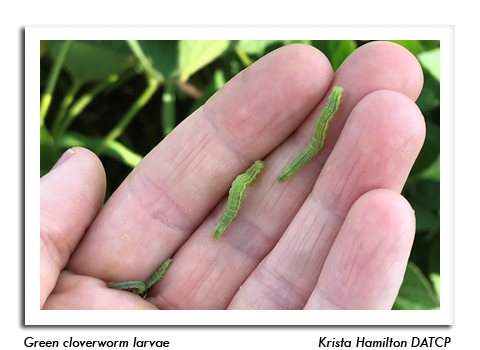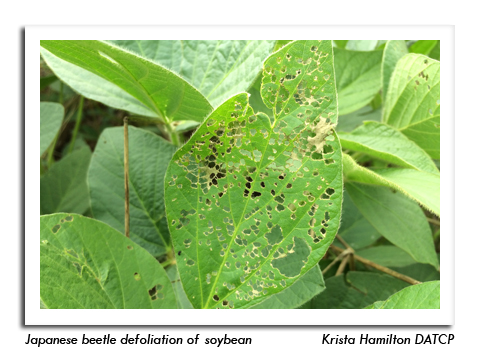
 |
|
|
Soybeans
Volume 65 Number 10 Date 07/08/2020 SOYBEAN APHID - Early July surveys indicate that aphid pressure is currently low. Fieldwide average counts were below 3.5 aphids per plant in all but one of 45 soybean fields sampled in the past week. The exception was a Brown County site with an average of 9.5 aphids per plant (947 aphids on 53 of 100 plants), which is still considered very low relative to the 250 aphid per plant economic threshold. Soybean aphid populations increase most rapidly in flowering soybeans and economic levels may develop before the end of the month. This pest requires consistent monitoring from now until the R5.5 stage of soybean growth in August. REDHEADED FLEA BEETLE - This flea beetle was observed on soybeans this week in southern and western Wisconsin. Although the RHFB is not considered a major threat to field crops, locally high populations occasionally develop and may warrant control in rare situations. Soybean growers are advised to be alert for an increase in beetle activity. Flea beetles typically hatch in July and August and feed on plants until September. GREEN CLOVERWORM - Minor leaf feeding and ¾-inch larvae were noted in Trempealeau County on July 7. Green cloverworm caterpillars appear around mid-July and occasionally causes economic damage in August. In Wisconsin, outbreaks occur approximately every 5-6 years. The last significant populations were recorded in 2015. DEFOLIATORS - Defoliation is common but light in surveyed fields, usually affecting less than 5% of plants. In addition to flea beetles and green cloverworms, the leaf feeding insects found during recent surveys were the bean leaf beetle, grasshoppers, Japanese beetle, and obliquebanded leafroller. Defoliation rates in surveyed fields have not exceeded the 20% economic threshold for soybeans in the early bloom stages as of July 9. -- Krista Hamilton, DATCP Entomologist .jpg)


.jpg)

.jpg)
|
|
|